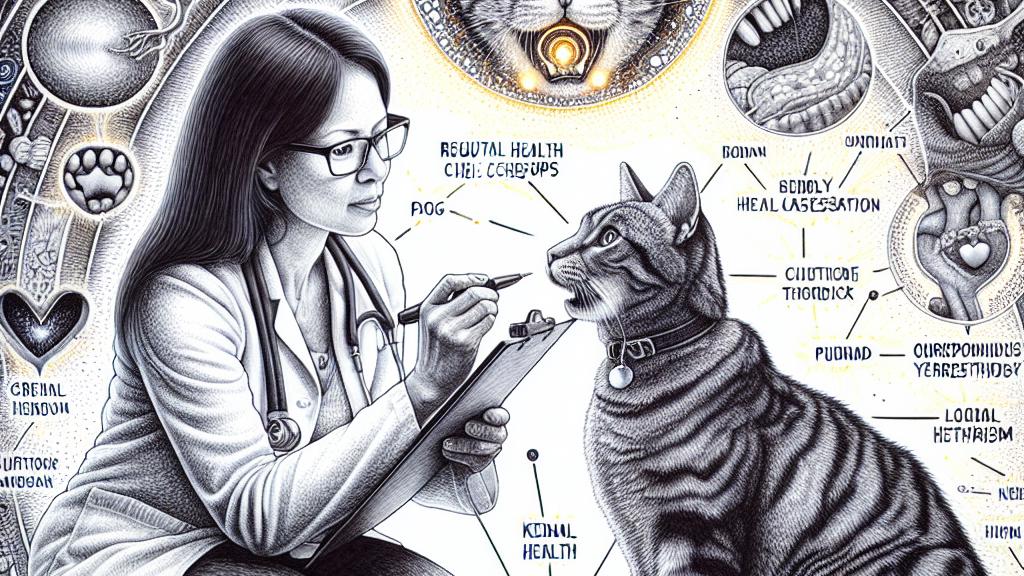Understanding Veterinary Checkups for Cats
Overview
- Regular cat checkups are crucial for their health and longevity.
- Veterinary visits can uncover hidden health issues that often go unnoticed.
- Understanding your cat's behavior during these visits can significantly enhance their care experience.

The Essential Role of Regular Health Checkups
In Japan, engaging anecdotes emphasize the necessity of routine veterinary checkups for cats. For instance, one proud owner was shocked to learn that their seemingly healthy feline's heart and lungs were difficult to assess because the cat was purring incredibly loudly. This captivating story perfectly illustrates a vital point: regular health assessments are not merely routine chores but rather essential opportunities to uncover potential health threats. Imagine the peace of mind that comes with knowing your cat is free from hidden conditions such as dental disease or kidney dysfunction. These early discoveries can make all the difference in ensuring your kitty lives a long, vibrant life. In fact, something as simple as a regular visit could reveal signs of hyperthyroidism, which is fairly common in older cats. Thus, every visit is a proactive step towards maintaining your cat’s health.
Navigating Challenges During Feline Exams
Despite the best intentions, veterinary checkups can pose challenges that stem primarily from our cats' unpredictable behaviors. Picture this: you arrive at the veterinary clinic, and your once-calm cat suddenly transforms into a ball of nerves or, perhaps, a purring machine. These reactions can obscure critical sounds that vets need to hear for accurate assessments. Many cat owners have shared enlightening stories about how their pets' unpredictable behavior has complicated the examination process. To mitigate these scenarios, preparation is key! Familiarizing your cat with their carrier, and even allowing them to explore the vehicle beforehand can significantly ease their nerves. For instance, employing treats and favorite toys during the journey can help create a positive association with the vet visit, allowing the veterinarian to conduct a thorough evaluation without distractions.
Mastering the Art of Preparation for Vet Visits
Preparation is not just essential; it is transformative when it comes to ensuring a smooth veterinary visit. Establishing a consistent schedule for health checkups can dramatically reduce your cat’s anxiety over time. This familiarity breeds confidence and a sense of security, making each visit less of an ordeal. Additionally, keeping a watchful eye on any changes in your cat’s behavior is paramount. If your furry friend suddenly withdraws from play or shows disinterest in their favorite treats, don’t ignore these signs—they can provide invaluable clues for your veterinarian. Take, for example, the case of a cat that diminished playtime, which turned out to be a sign of arthritis, commonly mistaken for simple laziness. By communicating these observations to the vet, you become an active participant in your cat's health journey, fostering an environment where they receive personalized care tailored to their specific needs. Remember, a trip to the vet is not merely about checking boxes—it's a critical partnership in safeguarding your cat's health and happiness.

Loading...